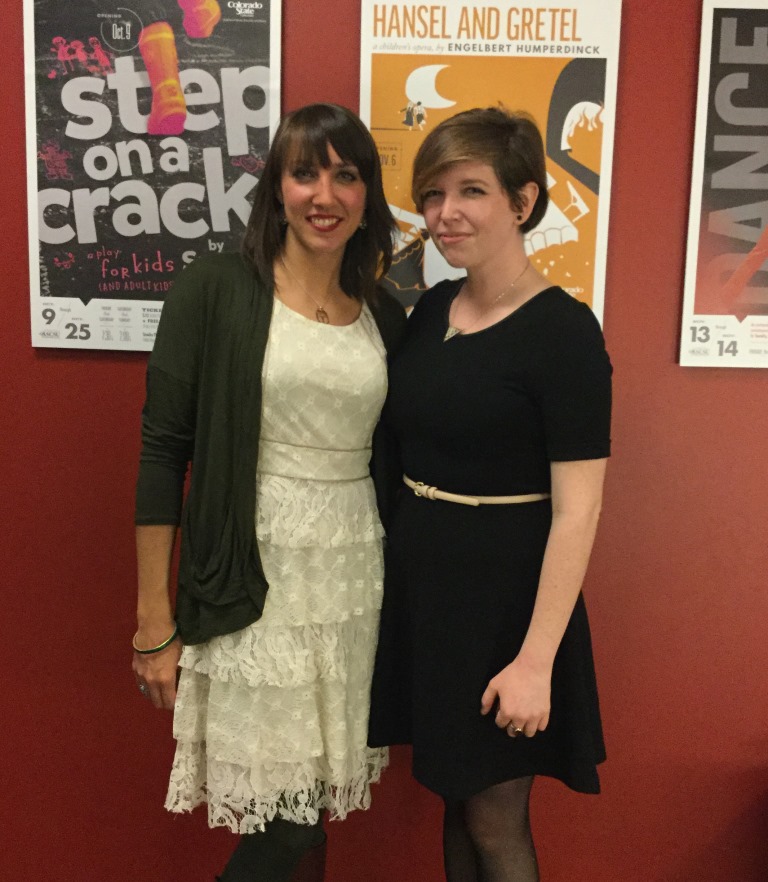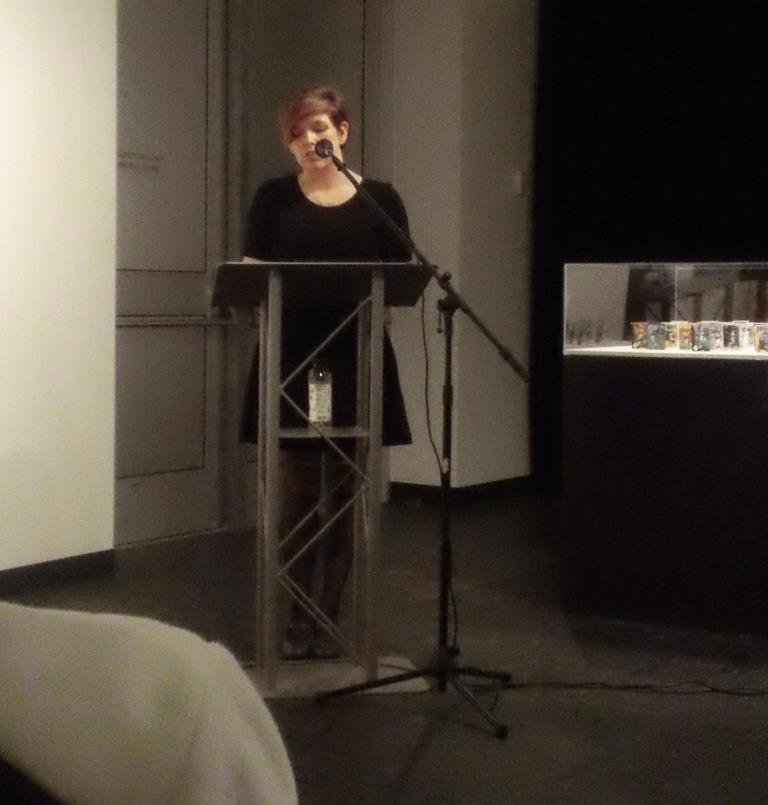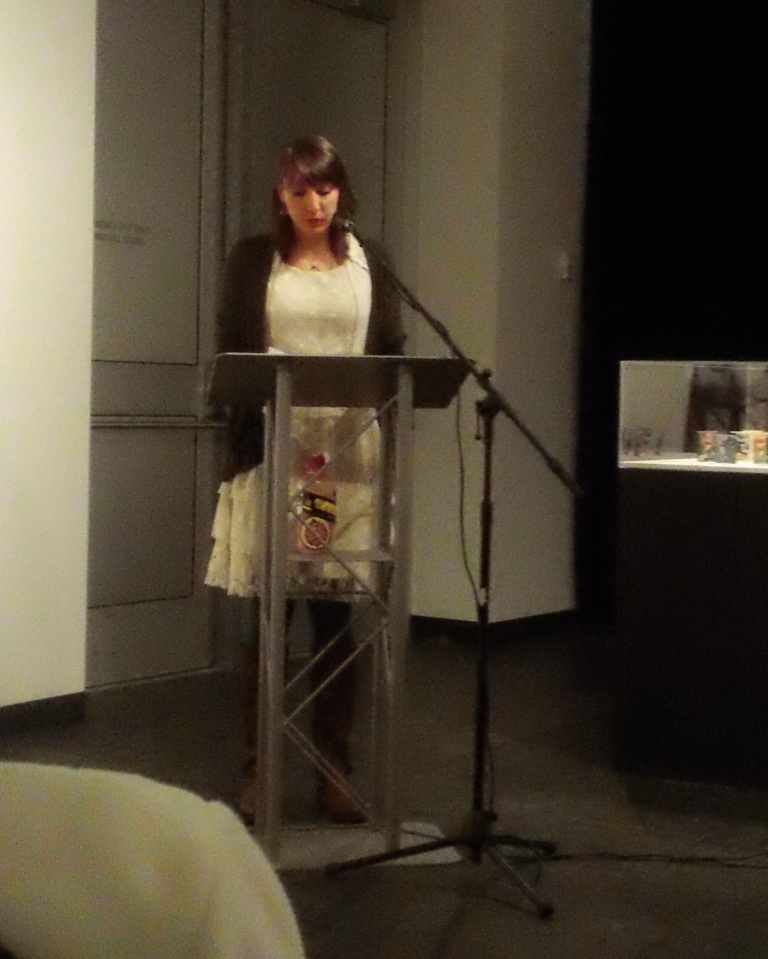~from English Department Communications Intern Ashley Alfirevic

For the last time of the Fall semester, everyone gathered in the UCA’s Art Gallery for the final Creative Wring and Reading Series event. Though the readings always feel congenial with all of the friendly faces of the English Department, I knew less of the people around me and it still felt incredibly familiar. Family, friends, and significant others of the two MFA readers, Sarah Hansen & Abby Kerstetter, filled the seats and the room with their care, support, and pride for the readers.
It reminded me of how many of us learned our love of reading in the first place: curled up before bed while someone we love told us a story. Maybe it was the same story night after night, maybe it was a long saga where we couldn’t wait to find out what happened next, or maybe it was the tale about the adventures of a legendary relative. The fiction and poetry of the MFA students carried all of the curiosity, the excitement, and, at the same time, the tender care and attention of those early bedtime stories that taught us to love books.
The readers’ advisors introduced them before their debuts, and Judy Doenges praised some of Sarah’s lesser-known talents: taking unintentionally artistic photos while dog sitting, running a massively popular Instagram account for her cat, and, according to Sarah’s friends’, turning conversations in bad bars into deep philosophical discussions. However, the crowd quickly learned of her more obvious talent: writing with an ability to probe into deep questions regarding animal-human relations, feminism, and sexuality. Her segment from her novel-in-progress about a young woman who joins the circus showcased her skills perfectly, all under a big red top.
As adept at her craft as they trapeze artists and lion tamers her novel describes, Sarah constructs the image of May, a young queer woman in the early twentieth century who is assigned to live with her conservative aunt after a family tragedy. Exploring her desires for her best friend, her issues of abandonment, and her troubled past, she looks to escape and join her estranged cousin Eliza in the circus. While May worriedly winds through the strange array of caged animals, sword-swallowers, and mimes while looking for Eliza, Sarah manages to create something so wonderfully common: a young girl struggling with her needs for independence, autonomy, and love, all of which we hope she can find under the circus tent and with painted-lady Ziggy.

Dan Beachy-Quick introduced Abby’s work, and, as his assistant in the program, credited her with all of the competence and fluidity of his presentations. “She actually wrote this introduction, too” he joked. Praising her writing as a beautiful exploration of identity, he noted that, “She is one who is trying to know herself, or perhaps her selves, and asking the question of how you know who it is you are.”
Abby opened by thanking her parents, who have supported her writing pursuits ever since she wanted to study “authorism” when she was seven years old. Her poetry intricately intertwines with her family history and her grandfather who, orphaned at age fifteen, had to leave his life as an Alaska native and travel to Pennsylvania. Tying together notions of self-hood, heritage, and indigenousness, Abby exposes the tensions between antiquity and newness, subjection and defiance.
Her poem of fire and charred bones, water and smooth rocks, declared, “Only the beginning is true” and later asked, “Must it be old to be authentic?” Discussing bait and sharp hooks, heritage objects, outstretched hands, and cleansing songs, she gently pulled the audience along as she dissected relationships between the self and the hands, parents and children, person and community, her repetition of hums and digs in her last poem creating a transcendent space where it all came together.

Exiting the UCA into the cold winter air, I still carried with me the feeling of hearth and home that the Art Museum had created, that mixing of family and friends and appreciation and art between the people who were close to one another.